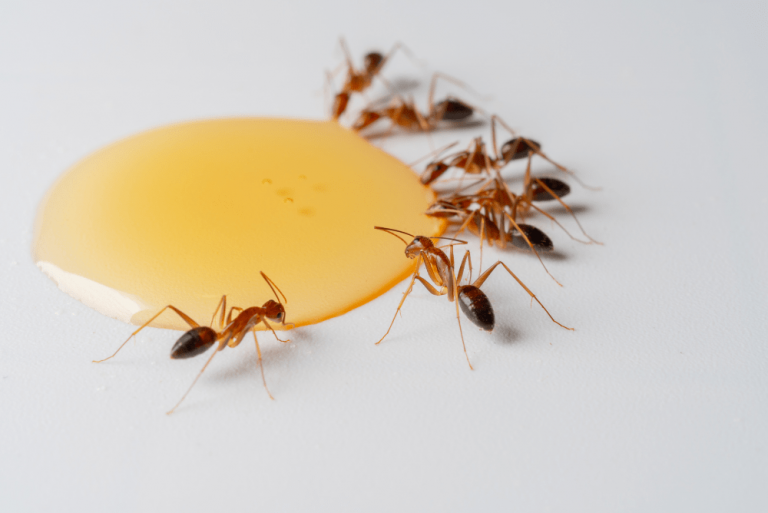Ant infestations are a common problem faced by homeowners and businesses in Singapore. These tiny creatures may seem harmless, but when they invade your home or office, they can cause significant discomfort and even pose health risks. Understanding the types of ants found in Singapore, why they invade properties, and the most effective methods of ants pest control is crucial for eliminating them and keeping them at bay. In this article, we will explore the different types of ants in Singapore, the reasons behind their infestations, and the best strategies for ant pest control.
Types of Ants Found in Singapore: A Guide for Effective Ant Pest Control
Singapore’s tropical climate makes it an ideal environment for various species of ants. Understanding the types of ants in Singapore can help you determine the most appropriate approach for ants pest control. Here are some of the most common species of ants you may encounter in your property:
1. Argentine Ants
Argentine ants are small and light brown. They tend to form large colonies and are aggressive towards other ant species. These ants can invade homes in search of food, and their colonies spread rapidly, causing severe infestations. Effective ants pest control methods, such as professional ant exterminators, can help manage their spread.
2. Fire Ants
Fire ants are easily recognised by their reddish-brown colour and aggressive behaviour. They can bite and sting, causing painful reactions and even allergic reactions in some cases. These ants are attracted to food sources and can pose a danger to children and pets due to their painful stings. Fire ants require immediate attention from a professional ant exterminator to ensure safety and effective removal.
3. Sugar Ants
Sugar ants are small and black or brown. As their name suggests, they are attracted to sugary foods, making kitchens and pantries common places for infestations. Though not harmful to humans, sugar ants can be a nuisance due to their persistence in finding food sources. Ant pest control methods can help reduce their presence around your home or business.
4. Pharaoh Ants
Pharaoh ants are tiny, yellowish-brown ants that form large colonies in homes and buildings. They are attracted to warm environments, and areas like kitchens and bathrooms are common spots for these ants. Pharaoh ants are known for spreading bacteria and pathogens. The use of an ant exterminator is essential for getting rid of their colonies.
5. Crazy Ants
Crazy ants get their name from their erratic, unpredictable movements. These ants often invade electrical equipment and can damage appliances and circuits. Their fast-moving nature makes them difficult to control, so it’s best to call in an expert ant exterminator who can use advanced pest control methods.

Why Ants Invade Homes and Businesses in Singapore

Ants are opportunistic pests, meaning they invade properties in search of food, water, and shelter. The tropical climate of Singapore, with its high humidity and abundance of food sources, makes it an ideal environment for ants to thrive. Here are some reasons why ants may invade your home or business:
1. Food Sources
Ants are attracted to food, particularly sugary substances, proteins, and grease. Kitchens, pantries, and dining areas are common places for ants to forage for food. Leftover crumbs, spilled sugar, or improperly stored food can quickly attract ants into your home. Effective ants pest control methods involve sealing food sources and eliminating attractants.
2. Moisture
Ants need water to survive, and they are naturally drawn to areas with high moisture levels. Leaky pipes, damp basements, or bathrooms with poor ventilation can create a perfect environment for ants to thrive. Identifying moisture sources and fixing leaks is crucial for successful ants pest control.
3. Warmth
Singapore’s warm climate provides a steady temperature that ants find comfortable. They seek shelter in cool, dark places like walls, cupboards, and hidden corners where they can build their nests and remain undisturbed. Taking steps to eliminate shelter opportunities helps prevent future infestations.
4. Poor Sanitation
Poor sanitation practices, such as improperly disposed of food waste or unclean surfaces, can create an ideal environment for ants. Ants are attracted to any food remnants they can find, so keeping your surroundings clean is essential in preventing infestations.
5. Nesting Sites
Certain species of ants may also invade homes and businesses to create their nests. These ants will look for small cracks, crevices, or spaces where they can hide and breed. Once a colony is established, they will actively search for food to feed the queen and worker ants. Sealing these entry points is key for ant pest control.
Effective Ant Pest Control Methods in Singapore: What Works

Now that you know why ants invade your property and the different species that may be causing trouble, let’s look at the most effective methods for ants pest control. Whether you have a minor infestation or a full-blown ant colony in your home or business, it’s important to act fast. Here are some tried and tested methods to eliminate ants for good:
1. Ant Extermination with Professional Help
One of the most effective ways to deal with an ant infestation is to hire a professional ant exterminator. Ant exterminators in Singapore have the experience and expertise to identify the type of ants invading your property and apply targeted treatments to eliminate the colony. They use safe, eco-friendly products and advanced techniques to ensure your home or business is free of ants.
2. Seal Entry Points
To prevent ants from entering your property, it is essential to seal all potential entry points. Inspect your home or business for cracks and gaps in doors, windows, walls, and foundation areas. Use caulk or weatherstripping to seal these openings and prevent ants from finding their way inside. This is an important step in any ants pest control strategy.
3. Ant Baits and Traps
Ant baits and traps are another effective method of pest control. These products attract ants with a food substance laced with insecticide. When the ants consume the bait, they carry it back to the colony, poisoning the queen and workers. Over time, the entire colony will be eradicated. Be sure to place the baits in areas where ants are frequently seen, such as along walls and near food sources.
4. Natural Remedies
If you prefer a more natural approach to ants pest control, several home remedies can help repel or kill ants. Some common natural deterrents include:
- Vinegar: A mixture of water and vinegar can be sprayed on ant trails to disrupt their scent trails and deter them from entering.
- Cinnamon: Ants dislike the smell of cinnamon. Sprinkling ground cinnamon in areas where ants are seen can help to drive them away.
- Lemon Juice: Ants are repelled by the acidity of lemon juice. Spraying lemon juice around entry points and along ant trails can deter ants.
5. Regular Cleaning
Maintaining a clean environment is crucial for preventing ants from invading your property. Regularly clean all surfaces, sweep up crumbs, wipe down counters, and store food in airtight containers. Take out the trash frequently and ensure that waste bins are properly sealed to eliminate food sources for ants.
6. Pest Control Spray
Pest control sprays can be used to target visible ant colonies. However, these sprays should only be used as a short-term solution, as they do not eliminate the entire colony. Professional ant exterminators typically use stronger, long-lasting insecticides to treat the problem at its source.
Preventing Future Ant Infestations: Long-Term Ant Pest Control Solutions
Once you’ve dealt with your current ant problem, it’s important to take steps to prevent future infestations. Here are a few preventative measures you can take to maintain effective ants pest control:
- Keep food sealed: Store food in airtight containers to make it less accessible to ants.
- Maintain your property: Regularly inspect your home or business for cracks, leaks, or other areas that could serve as entry points for ants.
- Address moisture issues: Fix leaky pipes, ensure proper ventilation, and dry up any areas of standing water.
Frequently Asked Questions (FAQs)
Signs of an ant infestation include seeing ants frequently in your home, particularly in kitchens or near food sources. You may also notice ant trails along walls or floors, or even see ant nests inside walls or other hidden areas.
While DIY methods like ant baits and natural remedies can be effective for minor infestations, professional ant exterminators are recommended for large or persistent infestations. They can target the root of the problem and ensure a long-term solution.
If you are stung by fire ants, wash the area with soap and water to remove the venom. Apply a cold compress to reduce swelling and take over-the-counter antihistamines if necessary. If you have a severe allergic reaction, seek medical help immediately.
While ants themselves do not directly damage structures, certain species, like crazy ants, can cause electrical equipment to malfunction. Their presence around wires and electronics can lead to short circuits and damage to devices.
To prevent future infestations, maintain proper sanitation, seal entry points, and fix any leaks or moisture issues. Regular cleaning and using natural deterrents or baits will help keep ants at bay.
Conclusion
Ant infestations are a common issue in Singapore, but with the right knowledge and approach, they can be effectively managed. By understanding the types of ants, the reasons behind infestations, and employing proper ants pest control methods, you can ensure your home or business remains ant-free. If you’re dealing with a persistent infestation, hiring a professional ant exterminator can provide a long-lasting solution. By taking preventive measures, you can keep ants away for good and enjoy a cleaner, safer environment.



